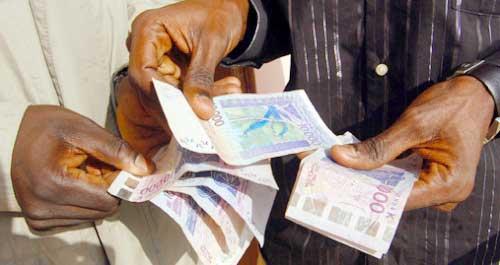Repression of Corruption: Senegal Among the Winners According to Amnesty

In the fight against corruption, Senegal is above the African average. But, it still has a lot of effort to make to curb this practice which is still very present, according to the Amnesty International report on corruption and human rights.
Amnesty International yesterday published its first report on the crackdown on anti-corruption defenders in West and Central Africa. Based on 19 countries including Senegal in the period 2018-2022, this report shows that Africa’s score is the lowest of all regions. It is estimated between 32 and 33%. But this drop does not concern Senegal, which scored 41 to 43%. “It is one of the countries that goes beyond the norm. It is one of the countries that have more than the average, compared to the 18 others,” said Liliane Mouan.
However, the senior researcher on corruption and human rights for West and Central Africa at Amnesty International specifies that Senegal has not yet reached the performance threshold in the fight against corruption. « Senegal is still not 50 out of 100, » she said. According to Liliane Mouan, « this perception of corruption is made in a context of restriction of freedoms and human rights and restriction of public space ». Thus, in the report which reports 31 cases of repression of anti-corruption defenders in the period 2018-2022, two cases are noted in Senegal. “This is the case of Boubacar Sèye, president of the NGO Horizon sans Frontières, who was detained for spreading false news because he asked where the European Union funds were which were to go for the fight against illegal immigration. There is also the case of Didy Diallo, a community leader in the Kédougou region who, since he created an NGO to promote the environment threatened by extractive industries in the region, has been receiving threats. Recently, he was also accused of spreading false news. “These are cases of threat and intimidation for spreading false news in Senegal,” said the Amnesty International senior researcher on corruption and human rights for West and Central Africa.
Strengthening of the legal and institutional framework
But, what is at the origin of this situation which continues in a context where impunity reigns? « It’s because there is a legal and institutional framework that needs to be strengthened, » thinks Liliane Mouan. Because, according to her, “there are institutions which are created by laws, but which are not put in place or if they are put in place, they are not effective and lack legal authority”. As proof, she points to the case of Ofnac, which can collect information, but which is not authorized to investigate allegations of corruption. Which leads her to say that “anti-corruption defenders face a biased justice system that neither punishes alleged acts of corruption nor cracks down on defenders who report these alleged acts of corruption”. Along the same lines, Samira Daoud, Director of Amnesty International West and Central Africa, recalls: “Certain mechanisms have been put in place at the national level to prevent cases of corruption and fight corruption effectively.” “Unfortunately, despite these different devices, mechanisms and the different legislations that have been put in place, corruption continues to thrive and people who denounce these acts of corruption are today threatened.”
In the report, the reasons why corruption persists are related to the attacks against anti-corruption defenders today, the non-respect of the mechanisms put in place and their lack of effectiveness. “Some mechanisms are not totally independent and cannot really play their role. Some lack resources and significant pressures can be exerted on a number of institutions which reduce their effectiveness. There are also a certain number of mechanisms and laws which should make it possible to better protect defenders.
Example: the laws specifically dedicated to the protection of defenders”, listed the director.
Adoption of the law on the protection of human rights
And it is on this contradiction essentially that Amnesty International wanted to draw the attention of African citizens, States and African institutions, because among the 19 countries, there are only three which have adopted laws of protection of human rights defenders. “These are Ivory Coast, Mali and Niger, there is only one, Ghana, which has a specific law for the protection of whistleblowers. Ten countries are mentioned that have laws on access to information, among which only one in Central Africa out of the 9 in West Africa,” the report further indicated. According to him, « Senegal has neither a law on the protection of human rights defenders, including anti-corruption defenders, nor a law on access to information ». And to remedy these shortcomings, Amnesty International invites the States which have adopted these laws, such as Côte d’Ivoire, Mali and Niger, to respect them. Because there are restrictions in the laws that oblige defenders to send reports to administrative authorities including where the funds they receive come from.
Amnesty also calls on those states that have taken the first step to comply with international standards and on others to put in place laws for the protection of human rights defenders. Amnesty also asks States to promote the work of defenders, who play a legitimate and important role in the fight against corruption, to also put an end to impunity, to strengthen the legal institutional framework for the fight against corruption by ensuring the independence and impartiality of judicial institutions.
It further calls for the adoption of legislation, which will allow greater protection for defenders, whether it be specific channels on the protection of defenders, whether it is a law on access to information, whether it is a law on the protection of whistleblowers, to strengthen anti-corruption mechanisms, to increase their independence and autonomy. To provide the means to defenders to investigate and fight effectively against acts of corruption, and to guarantee judicial independence so that acts of corruption are brought before the courts.
By Justin GOMIS / justin@lequotidien.sn

